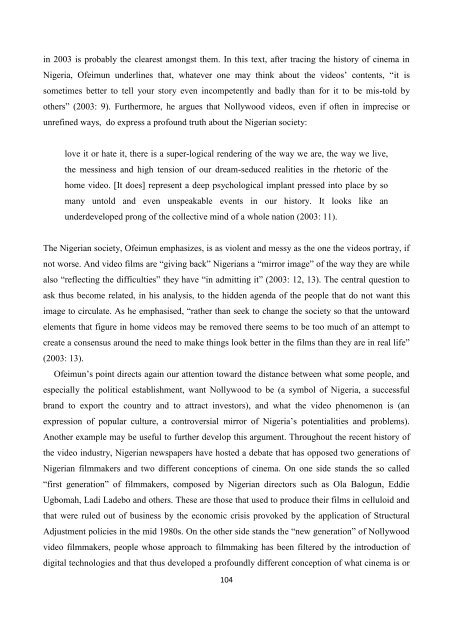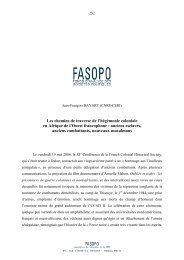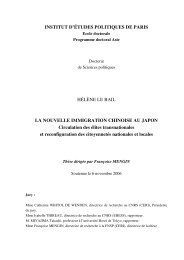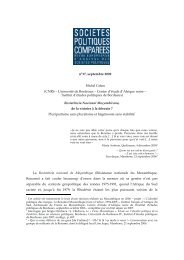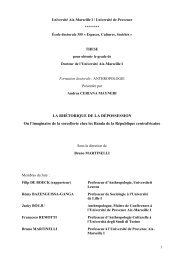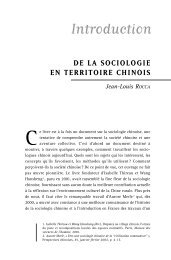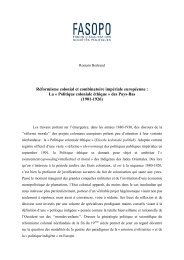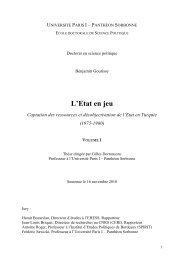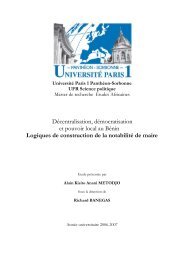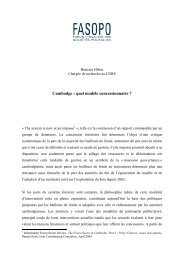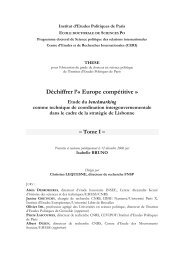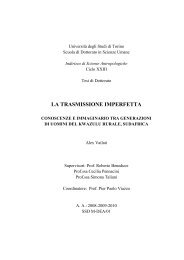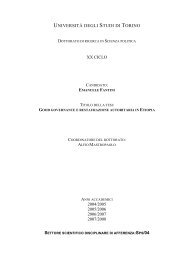You also want an ePaper? Increase the reach of your titles
YUMPU automatically turns print PDFs into web optimized ePapers that Google loves.
in 2003 is probably the clearest amongst them. In this text, after tracing the history of cinema inNigeria, Ofeimun underlines that, whatever one may think about the videos’ contents, “it issometimes better to tell your story even incompetently and badly than for it to be mis-told byothers” (2003: 9). Furthermore, he argues that Nollywood videos, even if often in imprecise orunrefined ways, do express a profound truth about the Nigerian society:love it or hate it, there is a super-logical rendering of the way we are, the way we live,the messiness and high tension of our dream-seduced realities in the rhetoric of thehome video. [It does] represent a deep psychological implant pressed into place by somany untold and even unspeakable events in our history. It looks like anunderdeveloped prong of the collective mind of a whole nation (2003: 11).The Nigerian society, Ofeimun emphasizes, is as violent and messy as the one the videos portray, ifnot worse. And video films are “giving back” Nigerians a “mirror image” of the way they are whilealso “reflecting the difficulties” they have “in admitting it” (2003: 12, 13). The central question toask thus become related, in his analysis, to the hidden agenda of the people that do not want thisimage to circulate. As he emphasised, “rather than seek to change the society so that the untowardelements that figure in home videos may be removed there seems to be too much of an attempt tocreate a consensus around the need to make things look better in the films than they are in real life”(2003: 13).Ofeimun’s point directs again our attention toward the distance between what some people, andespecially the political establishment, want Nollywood to be (a symbol of Nigeria, a successfulbrand to export the country and to attract investors), and what the video phenomenon is (anexpression of popular culture, a controversial mirror of Nigeria’s potentialities and problems).Another example may be useful to further develop this argument. Throughout the recent history ofthe video industry, Nigerian newspapers have hosted a debate that has opposed two generations ofNigerian filmmakers and two different conceptions of cinema. On one side stands the so called“first generation” of filmmakers, composed by Nigerian directors such as Ola Balogun, EddieUgbomah, Ladi Ladebo and others. These are those that used to produce their films in celluloid andthat were ruled out of business by the economic crisis provoked by the application of StructuralAdjustment policies in the mid 1980s. On the other side stands the “new generation” of Nollywoodvideo filmmakers, people whose approach to filmmaking has been filtered by the introduction ofdigital technologies and that thus developed a profoundly different conception of what cinema is or104


